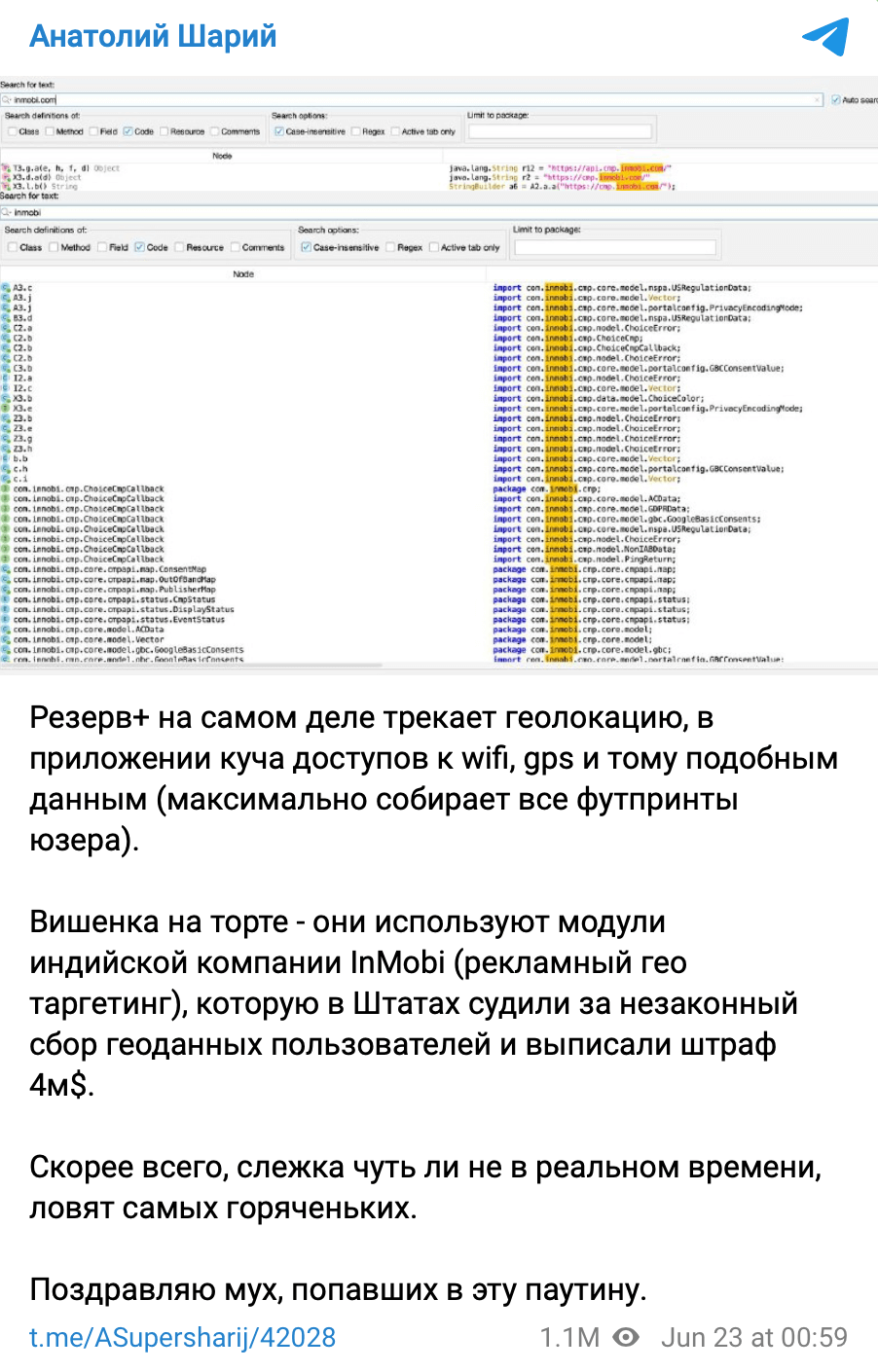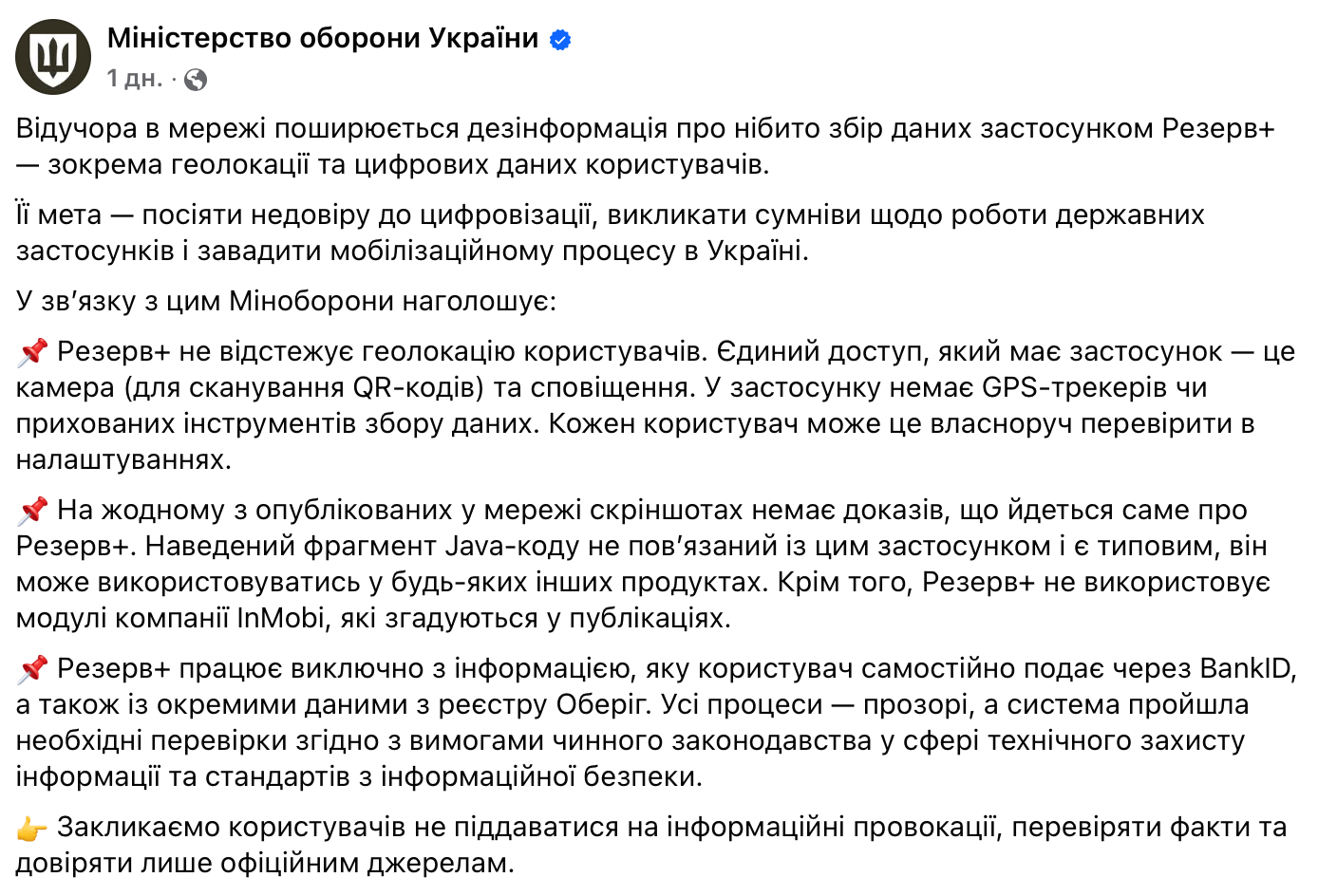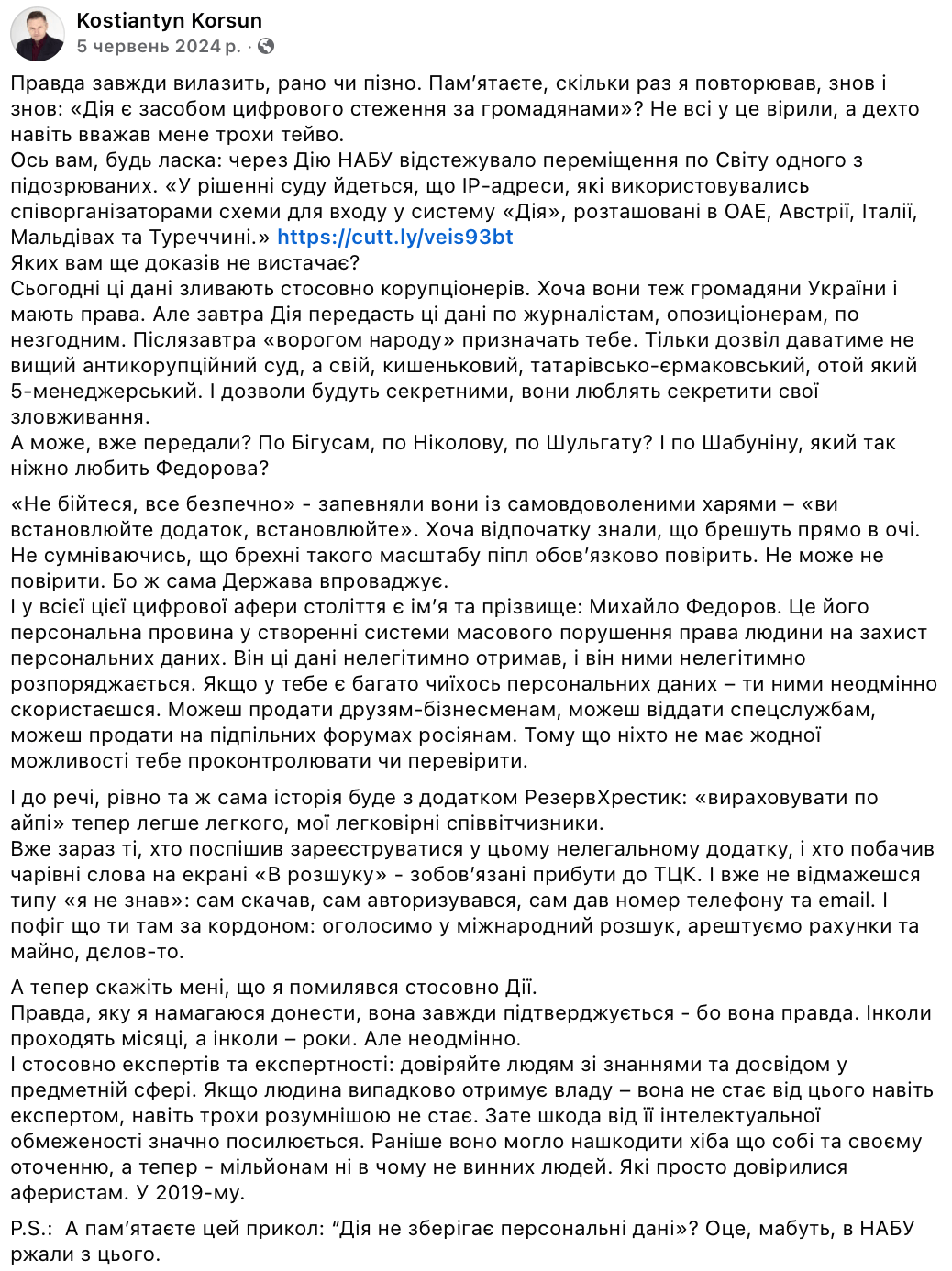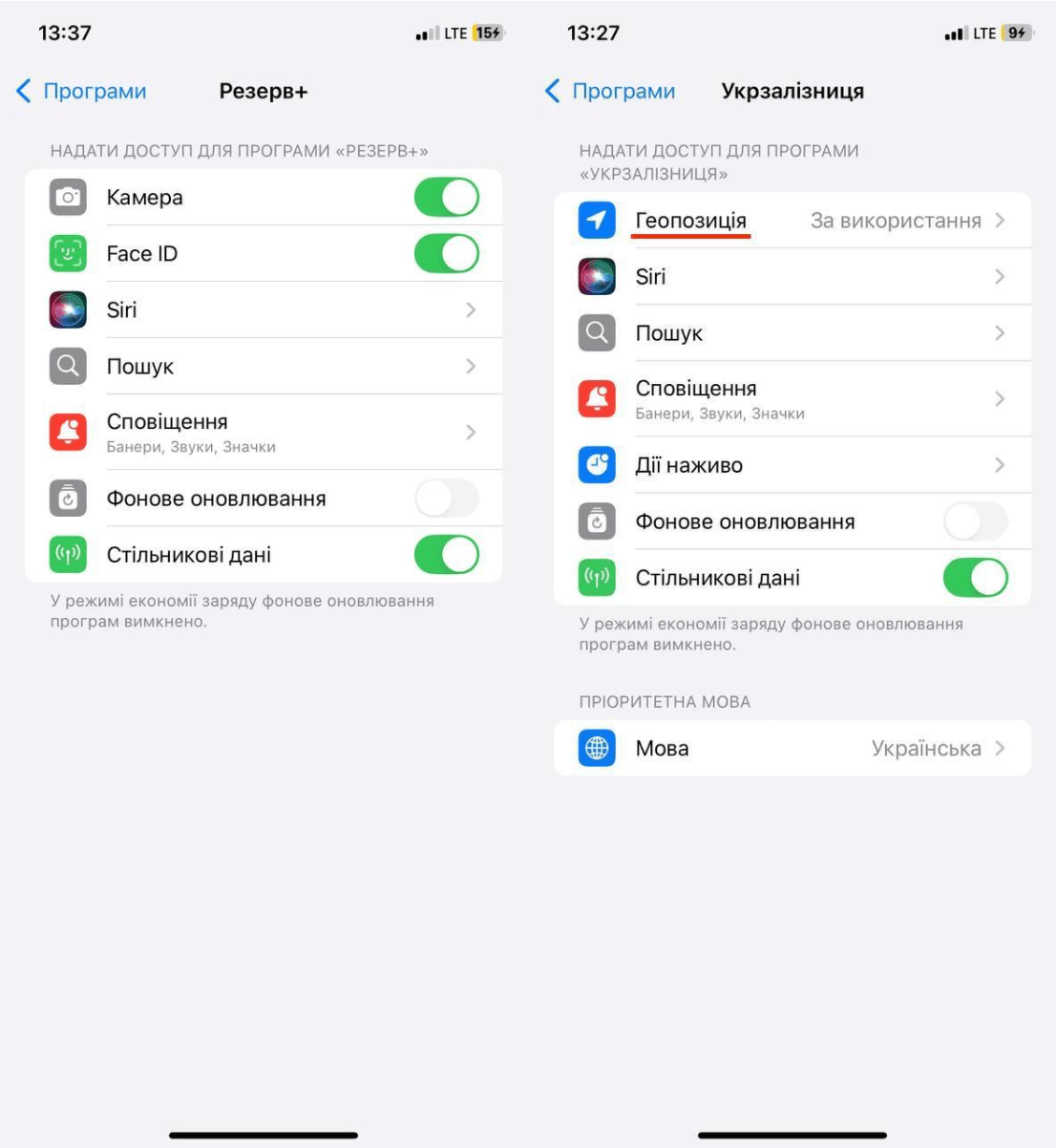Verification within Meta’s Third-Party Fact-Checking Program
Information has been spread online claiming that the “Reserve+” app tracks users’ geolocation. It is also alleged that the app uses modules from the company InMobi, which was previously prosecuted in the U.S. for illegal collection of geodata.
This is false. The Ministry of Defense refuted this information. “Reserve+” does not have access to users’ geodata.
Screenshot of the post
On June 23, 2025, the Ministry of Defense published a refutation of this information. They stated that “Reserve+” does not collect geolocation; the app only has access to the camera for scanning QR codes and notifications. The ministry emphasized that there is no evidence proving that the Java code snippets shown in screenshots are related to the app. As noted, the code fragment “is typical and can be used in any other products”.
Deputy Minister of Defense for Digitalization Kateryna Chernogorenko denied rumors about “Reserve+” tracking users in 2024.
Screenshot of the Ministry of Defense’s refutation
Accusations about user tracking by apps of the Ministry of Digital Transformation have appeared before. In 2024, a case gained publicity when NABU tracked down a co-organizer of schemes involving former State Property Fund head Dmytro Sennychenko by IP addresses used to log into “Diia”. At that time, cybersecurity specialist Kostiantyn Korsun commented: “By the way, exactly the same story will be with the ‘Reserve+’ app: ‘tracking by IP’ is now easier than easy, my gullible compatriots.” 
Screenshot of Kostiantyn Korsun’s Facebook post
The case and investigation are real. And although Korsun formally wrote specifically about the IP address, he did not explain how it differs from geolocation. This omission can mislead inexperienced users who do not know the difference between these terms.
An IP address is basic technical information recorded by every site when a user connects. It is used for data routing, basic analytics, and security. The IP address is tied to the internet provider that assigns it and identifies the network interface of a device, not the person directly. It does not reveal the exact location of the user, only an approximate geographic region — usually at the country level, sometimes city or district. However, this data can be inaccurate, especially if a user employs a VPN or other anonymization tools.
Geolocation, on the other hand, allows the determination of a person’s location with meter-level accuracy. However, it can only be obtained with the user’s consent. If you do not grant permission to access GPS, the app cannot obtain your coordinates. “Reserve+” generally does not have the option to request permission for geolocation tracking. Permissions can be checked in the phone’s settings.
Comparison of permissions of Reserve+ and the “Ukrzaliznytsia” app, which may request access to geolocation
In Diia’s rules on personal data processing, it is stated that the app automatically collects IP address data primarily for security and proper functioning of the webpage. In fact, any app or platform, including Reserve+, automatically receives the client’s IP address when connecting to the server.
It is important to note that law enforcement can obtain access to IP addresses via internet providers or other organizations that store activity logs, but only within the framework of criminal proceedings and by court decision. This is standard practice for law enforcement in many countries worldwide.
Diia’s notice on personal data processing also states that “information collected by the app may be disclosed if necessary to investigate, prevent, or respond to potential obstacles, violations, fraud, or situations that pose a potential threat to the safety of any person”.
Earlier, we debunked the fake that allegedly the Reserve+ database was being sold on the darknet.
